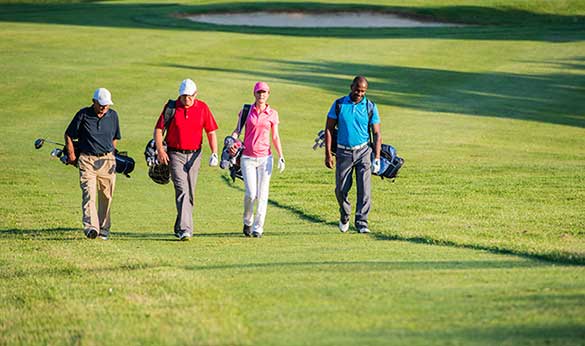The answer is............the one you enjoy most! Reference: Ace - Pro Source

Ever wondered which types of exercise are most closely associated with getting a good night’s sleep? How does a long run compare to a round of golf? Is a walk around the block as conducive to good sleep as biking or strength training? What about mind-body activities like yoga or Pilates?
Researchers at the Perelman School of Medicine at the University of Pennsylvania recently tried to answer the question of whether specific types of physical activities may impact sleep quality.
Not only did their study reveal which activities were most beneficial—all the activities just mentioned, plus aerobics/calisthenics and gardening—they also found that some types of physical activity took a toll on the quality of one’s sleep. Specifically, household chores and childcare were associated with increased cases of poor sleep habits (a fact that will come as no surprise to parents of young children).
Physical activity is already well associated with healthy sleep, but the new study focused on identifying whether specific types of physical activities may impact sleep quality. A team of Penn researchers, who presented their findings at the 29th annual meeting of the Associated Professional Sleep Societies in June, used data on sleep and physical activities of 429,110 adults from the 2013 Behavioral Risk Factor Surveillance System.
Researchers measured whether each of 10 types of activities was associated with typical amounts of sleep, relative to both no activity and to walking. Survey respondents were asked what type of physical activity they spent the most time doing in the past month, as well as how much sleep they got in a typical 24-hour period. Because previous studies showed that people who get fewer than seven hours per night are at greater risk for poor health and functioning, the study evaluated whether people who reported specific activities were more likely to also report sufficient sleep.
Compared to those who reported that they did not get physical activity in the past month, all types of activity were associated with a lower likelihood of insufficient sleep, with the big exception being household chores and childcare. To assess whether these effects are just a result of any activity, results were compared to those who reported walking as their main source of activity.
Compared to walking, the following activities were associated with fewer cases of insufficient sleep: aerobics/calisthenics, biking, gardening, golf, running, weight-lifting and yoga/Pilates, while household and childcare activities were associated with higher cases of insufficient sleep. These results were adjusted for age, sex, education level and body mass index.
“Although previous research has shown that lack of exercise is associated with poor sleep, the results of this study were surprising,” says Michael Grandner, Ph.D., an instructor in psychiatry and lead author of the study. “Not only does this study show that those who get exercise simply by walking are more likely to have better sleep habits, but these effects are even stronger for more purposeful activities, such as running and yoga, and even gardening and golf.”
In other words, enjoyable, physically active pursuits are a great way to promote better sleep, an important piece of wisdom all health and fitness professionals should be sharing with their clients. And, given the apparent negative impact of housework and childcare, it might be worth discussing these challenges with clients who have families.
Also worth discussing? The huge role sleep plays in overall health and well-being, including mental and physical performance, weight maintenance and emotional health.
“These results are consistent with the growing scientific literature on the role of sleep in human performance,” continues Grandner. “Lab studies show that lack of sleep is associated with poor physical and mental performance, and this study shows us that this is consistent with real-world data as well. Since these results are correlational, more studies are needed to help us understand whether certain kinds of physical activity can actually improve or worsen sleep, and how sleep habits help or hurt a person’s ability to engage in specific types of activity.”






0 comments:
Post a Comment